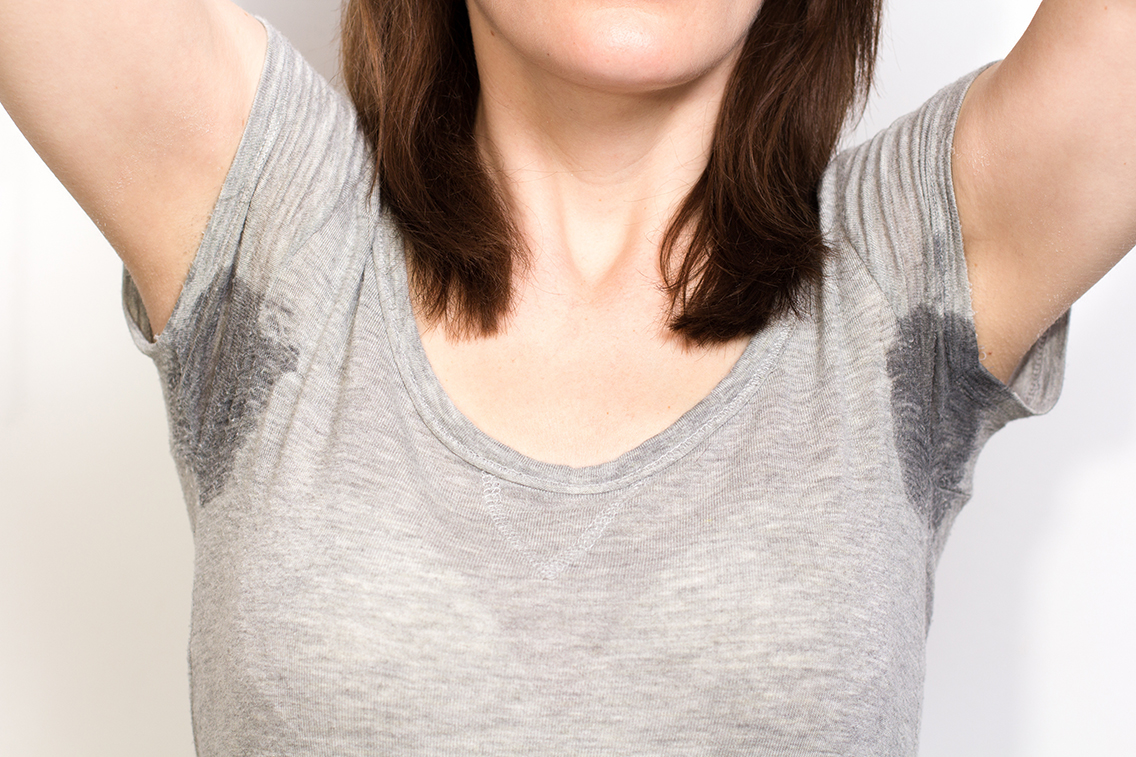
Excessive Sweating (Hyperhidrosis)
Treating Hyperhidrosis (Excessive Sweating)
Say goodbye to excess sweat and unpleasant odour!
Increased sweating is a normal response to a rise in body temperature, and to emotions such as anxiety. However, excessive sweating (also known as hyperhidrosis), can occur when you’re at rest, in cold temperatures or randomly at times when you wouldn’t expect to sweat. Its more common than you think and it can affect the whole body or just certain areas, such as the armpits, palm of the hands etc, and can affect self esteem and confidence.
Sometimes, it may get better with age and there are things that you can do at home to limit the amount of sweat that you produce; but for those times where it doesn’t get better on its own, we have a clinical treatment that can help.
We offer an effective & scientifically proven treatment for the reduction of excessive sweating for those who have tried everything else, so you don’t have to suffer anymore. It involves relaxing the sweat glands with an injectable product (known as botulinum toxin), a painless procedure which can be done within minutes.
______
Pricing: From £450 (for both armpits/hands etc).
Benefits of Hyperhidrosis treatment
Dramatic Reduction in Excessive Sweating
Treatments like Botox injections can reduce sweat production by up to 87%, particularly in the underarms, hands, feet, or face.
Odour Reduction
By targeting the sweat glands, treatments also reduce moisture that feeds bacteria—resulting in noticeably less body odour.
Improved Quality of Life
Relief from constant sweating enhances daily comfort, clothing choices, and participation in social or professional settings.
Boost in Self-Confidence
With drier skin and less visible sweating, patients often feel more confident and less self-conscious.
Non-Invasive & Quick Procedure
Most treatments, especially Botox, are non-surgical, minimally uncomfortable, and take less than 30 minutes with no downtime.
Long-Lasting Results
Effects typically last 4–9 months, offering lasting relief and reduced need for topical solutions or clothing changes.
Versatile Treatment Areas
Effective for multiple regions: underarms, palms, soles of feet, face, and even the groin area.
Frequently asked questions about Hyperhidrosis treatment
How long do the Hyperhidrosis treatment results last for?
As the treatment is carried out using Botulinum Toxin, the effects will last anywhere from 3-6 months.
Can I reduce excessive sweating at home?
Things you can do at home to help reduce excess sweating;
Do’s:
- Wear loose-fitting clothes to minimise signs of sweating
- Wear socks that absorb moisture and change your socks at least twice a day if possible
- Wear leather shoes and try to wear different shoes day to day
Don’ts:
- Wear tight clothes or man-made fabrics – for example, nylon
- Wear enclosed boots or sports shoes that may cause your feet to sweat more
- Do things that might make your sweating worse – for example, drinking alcohol or eating spicy food
How do I know if I'm suitable for Hyperhidrosis treatment?
Sweating is natural, however, this treatment is suitable for those that have noticed excess sweating in a particular area (such as armpits, or palms of the hands).
It is important to see your GP if you have tried to reduce the amount you sweat and you still notice any of the following:
- Stops you from getting on with your daily activities
- Happens at night (you’re having night sweats)
- You have a family history of excessive sweating
- You’re taking medication for another condition
Your GP may refer you for tests if they think another condition may be causing your sweating.
















